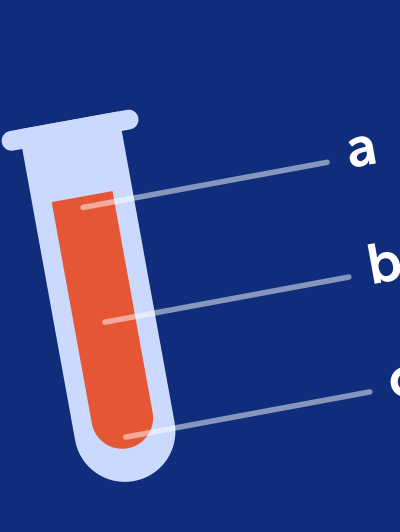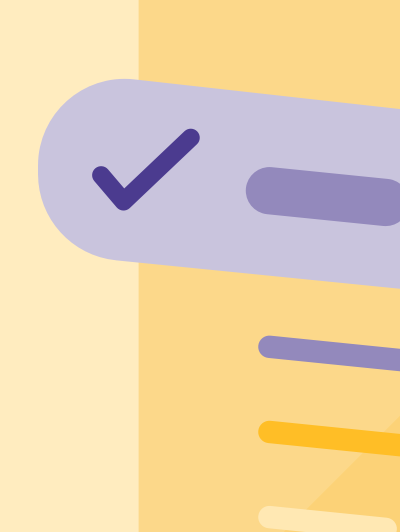
The Daily NCLEX® Challenge is the easiest way to ace your NCLEX exam the first time! Join today, and access 7 days of Premium for free.
Sign up now to receive your first challenge →
Finishing nursing school is quite the accomplishment, but passing the NCLEX is an even more daunting task that stands in between graduation and becoming a registered nurse. It’s difficult to study for final exams in nursing school while at the same time reviewing information from previous semesters to prepare for the NCLEX. Many students even take a prep course while finishing nursing school. Regardless of how much prep work and studying you’ve already done for the test, there are always a few more things you can squeeze in last minute to boost your chances of passing. The first few, and possibly the most obvious pointers for last-minute NCLEX prep do, of course, involve making sure that you are physically and mentally prepared to take a difficult exam.
Do:
Don’t:
Remembering not to cram for hours on end the night before the exam is important. Some easy review of critical concepts is great, but don’t exhaust your mind. It’s easy to forget to rest and prepare yourself for optimum mental performance when you’re anxious about passing one of the most important exams of your nursing career.
If time is running out and you’re only days or hours from taking the exam, your time needs to be spent efficiently to maximize your benefit from studying. Instead of poring over semesters’ worth of class notes and textbooks, focus on more concise study guides (or “cram sheets”) that highlight concepts and facts with less fluff in between.
It’s also beneficial to have a few electrolyte range sheets on hand to make review easy. The NCLEX tends to have multiple questions that involve electrolyte ranges and signs and symptoms, so it’s worth it to spend a few extra minutes creating a last-minute study tool. If you have a day or two before the test, consider creating some brief electrolyte flashcards for yourself. There are some excellent apps for making flashcards, so you can carry them with you everywhere you go. When you have a few minutes here and there, brush up on your electrolyte knowledge.
If you’re not quite down to last-minute time, it’s even better to read through all your old class notes and make your own study guide if you haven’t already. Create your trusty study guide in outline format, allowing you to skim over it quickly. Be sure to put emphasis on topics that you struggle with. The more you go through the process of writing something, the easier it is to remember it.
Another trick that falls under the efficiency umbrella is using mnemonics to remember concepts and facts that you struggle with. Mnemonics are particularly helpful for areas such as remembering which pathogens and diseases fall under which type of precautions. For example, to remember which diseases fall under airborne precautions, remember “MTV” for airborne precautions: Measles, TB, Varicella/Herpes Zoster. It’s common to learn mnemonics in nursing school, but remember that they’re useful for helping you remember concepts that you struggle with, or that are easy to forget. You can always create your own when you’re pressed for time. It’s much easier to remember a few letters than a list of various signs and symptoms.
During the test, make your best efforts to narrow down your multiple-choice options. Avoid answers that include absolutes, such as “always”, or “never”. These are almost always the incorrect answers, and they are designed to trick you. Once you’ve narrowed your selection down to two potential answers, things get a bit easier. Your odds of selecting the correct answer randomly are now 50%. We have a few more tips to help you boost these odds.
If you narrow a question down to two answers and one of the answers is an assessment answer, for example, includes words such as auscultate, assess, palpate, collect information, or monitor, choose the assessment-related answer over an intervention answer. Always assess the patient before performing an intervention. The intervention answer may not necessarily be incorrect, but the assessment answer tends to be the more correct answer. The creators of the NCLEX want to make sure you are following the nursing process – remember “ADPIE”: assess, diagnose, plan, implement/intervene, evaluate.
The writers of the NCLEX enjoy creating multiple-choice answer options that are correct, but not the best answer for the question. Keep this in mind while choosing your answers. Always read every potential answer. You may see the first answer option and know that it is factually correct, but hold off on selecting it until you evaluate your other answers. It may be a case of the assess vs. intervene dilemma discussed earlier. The invention may be correct, but the test writers want to see that you understand that assessment is the best option before performing an intervention.
On the day of the test, remember to take a few deep breaths and relax. A calm mind is better able to think critically. A Taiwanese study conducted in 2015 demonstrated that those who participated in a semester-long mindfulness meditation were able to learn more effectively and scored higher on cognitive performance tests than those who did not participate. While you most likely don’t have the time to participate in a semester-long class, taking a few moments to calm your mind and focus on the day of the test will boost your memory and critical thinking as well as help alleviate some test anxiety.
If you are still in nursing school, use these strategies and tips on your nursing exams.
Continue reading

There are always a few more things you can squeeze in last minute to boost your chances of passing.
Continue reading
